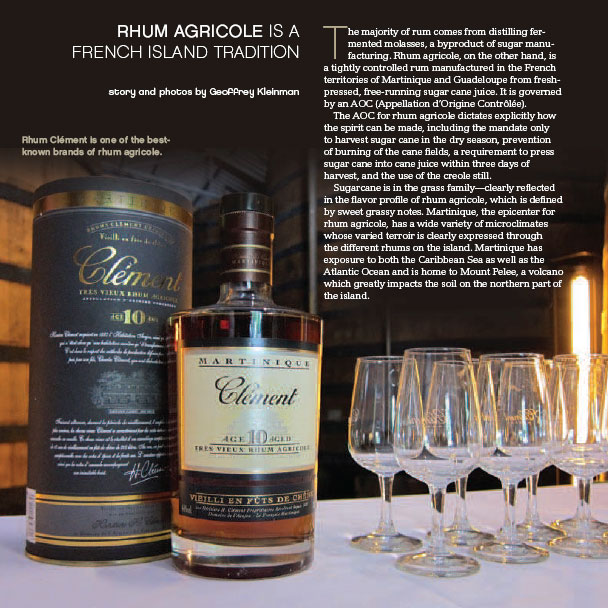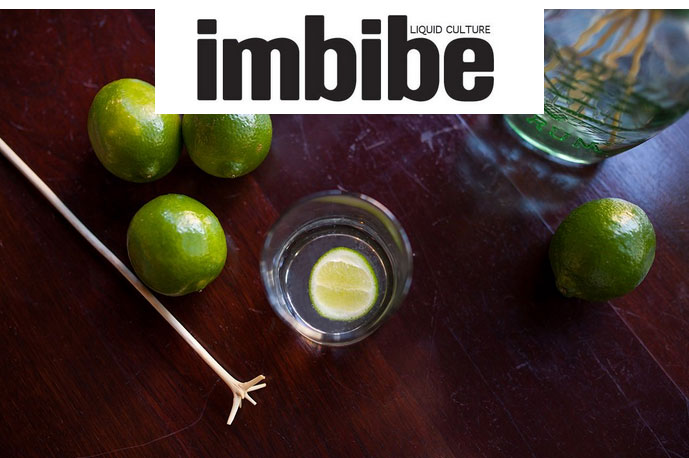
RHUM AGRICOLE IS A FRENCH ISLAND TRADITION
The majority of rum comes from distilling fermented molasses, a byproduct of sugar manufacturing. Rhum agricole, on the other hand, is a tightly controlled rum manufactured in the French territories of Martinique and Guadeloupe from freshpressed, free-running sugar cane juice. It is governed by an AOC (Appellation d’Origine Contrôlée).
The AOC for rhum agricole dictates explicitly how the spirit can be made, including the mandate only to harvest sugar cane in the dry season, prevention of burning of the cane fields, a requirement to press sugar cane into cane juice within three days of harvest, and the use of the creole still.
Sugarcane is in the grass family—clearly reflected in the flavor profile of rhum agricole, which is defined by sweet grassy notes. Martinique, the epicenter for rhum agricole, has a wide variety of microclimates whose varied terroir is clearly expressed through the different rhums on the island. Martinique has exposure to both the Caribbean Sea as well as the Atlantic Ocean and is home to Mount Pelee, a volcano which greatly impacts the soil on the northern part of the island.
Click Here to Read the Full Article








